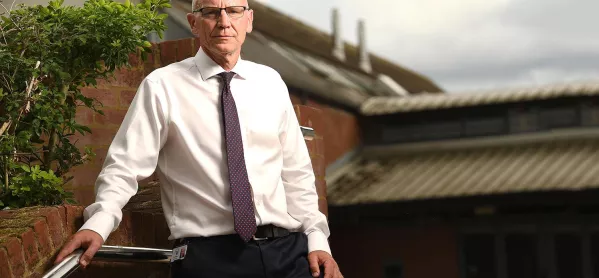As I witness English teachers and their students grappling with a new GCSE syllabus, an important aspect of their work has become apparent. There is a strong emphasis on developing and using wider vocabulary to support complex extended written responses.
Synonyms are the new Spag at the school where I am head, Tanbridge House.
So here’s my supportive attempt relating to that simple, yet commonly used noun, “crisis”: catastrophe, calamity, cataclysm. Do I get extra marks for alliteration or lose them when I admit to searching Google for the answers?
Whichever way you choose to grade me, there is an important group of people for whom the word “crisis” appears to have no meaning. You see, despite the overwhelming evidence, leaders at the Department for Education can’t or won’t see that there is a funding crisis engulfing our schools. In their view, there is room only for efficiencies and a regular sound bite opportunity to reassure the public that all’s well and that schools have never had it so good.
In one way, of course, they are right. Superb, dedicated teachers and support staff are keeping the ship afloat. The water is lapping around our necks but we’re not sunk yet. Standards are decent, schools are covering off the chasms left by shrinking local authorities and social care provision - and there aren’t too many schools being forced to run a four-day week.
In short, if you set sights low enough, everything’s just fine.
An alternative view, however, is the one provided by every reasonable professional who actually works day-to-day in our schools. There isn’t a serving headteacher who won’t confirm that school budgets are cut to the bone, that there aren’t enough teachers to go round and that demand for support for children with SEND (special educational needs and disabilities) and mental health problems is far outstripping capacity.
I could go on.
Fortunately, public services such as schools don’t face the horror of having a patient die while waiting in a hospital corridor - that’s a truly shocking crisis. But bit by bit and drip by drip, our school system is lurching towards a critical condition.
Heads, teachers and support staff are stretched way beyond what is reasonable. We are running out of hope and optimism. Coupled to this, we simply don’t trust what our political masters are saying about funding and other important issues.
If there is a certain crisis it’s related to the ostrich-like approach of those who lead us. Many seem to be so far removed from school life that they can’t see what every reasonable professional is telling them.
Forget the “usual suspects”. We’ve got moderate headteachers marching, parent action groups shouting “SOS” and conservative governors crying “help”.
Crisis, what crisis?
When you face a calamity the first thing that one has to do is acknowledge it. Only then, can the problems be fully remedied.
Schools have played their part in austerity, and hardworking and dedicated ministers like Damian Hinds and Nick Gibb have had a tough hand to play, too. But the denials have to stop and that begins with removing your head from the sand.
Jules White is the coordinator of Worth Less?, a fair funding campaign, and headteacher of Tanbridge House School in West Sussex


